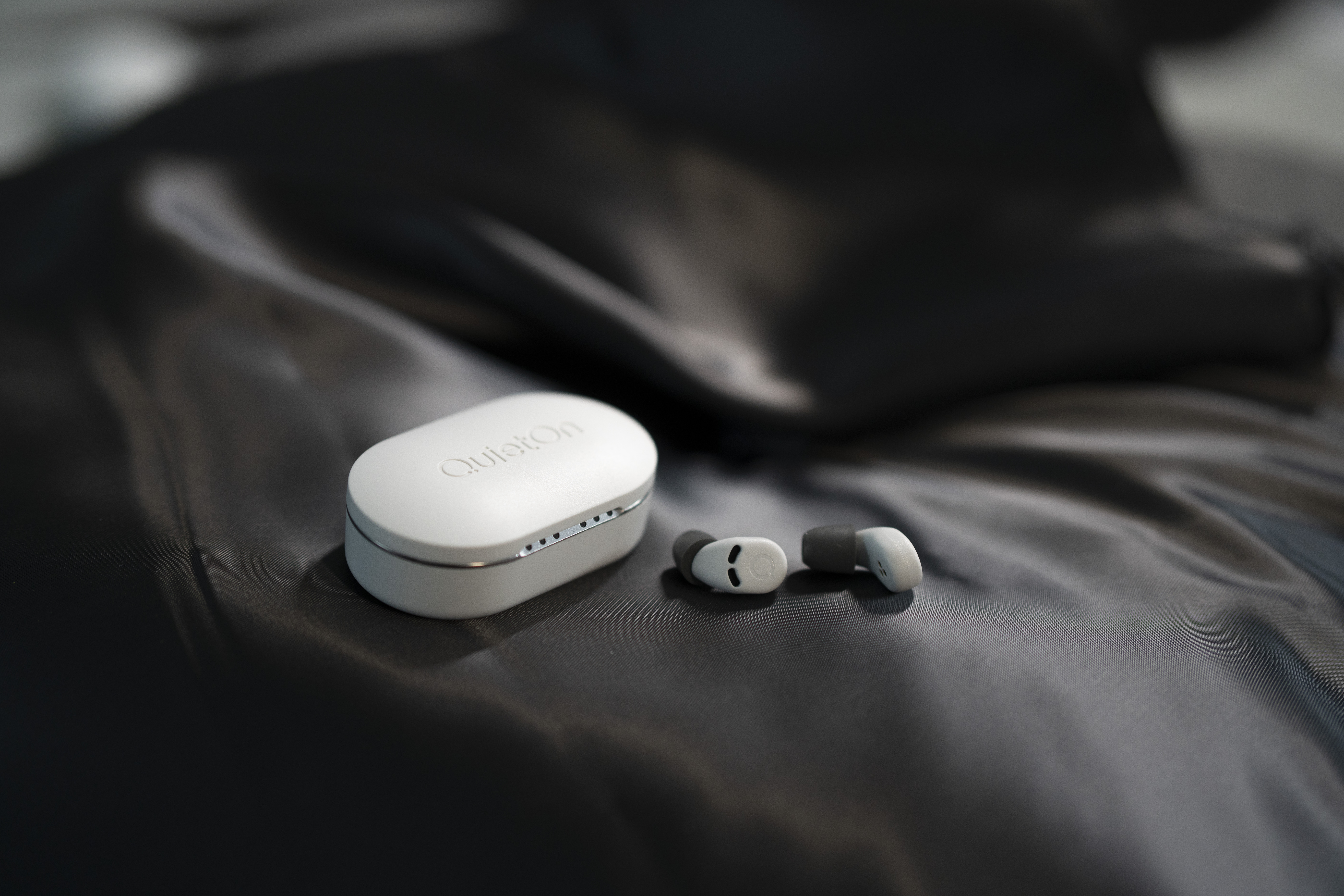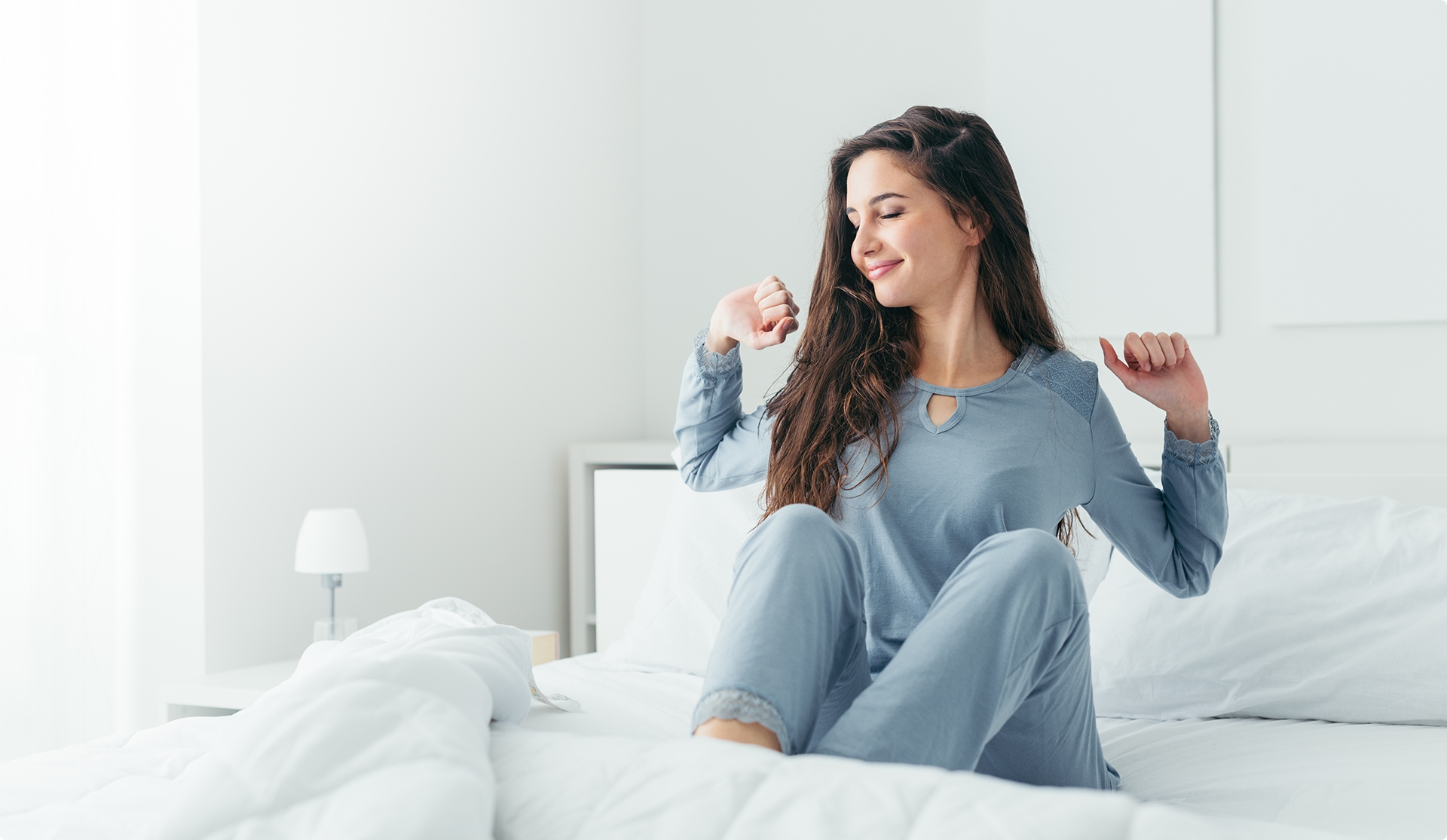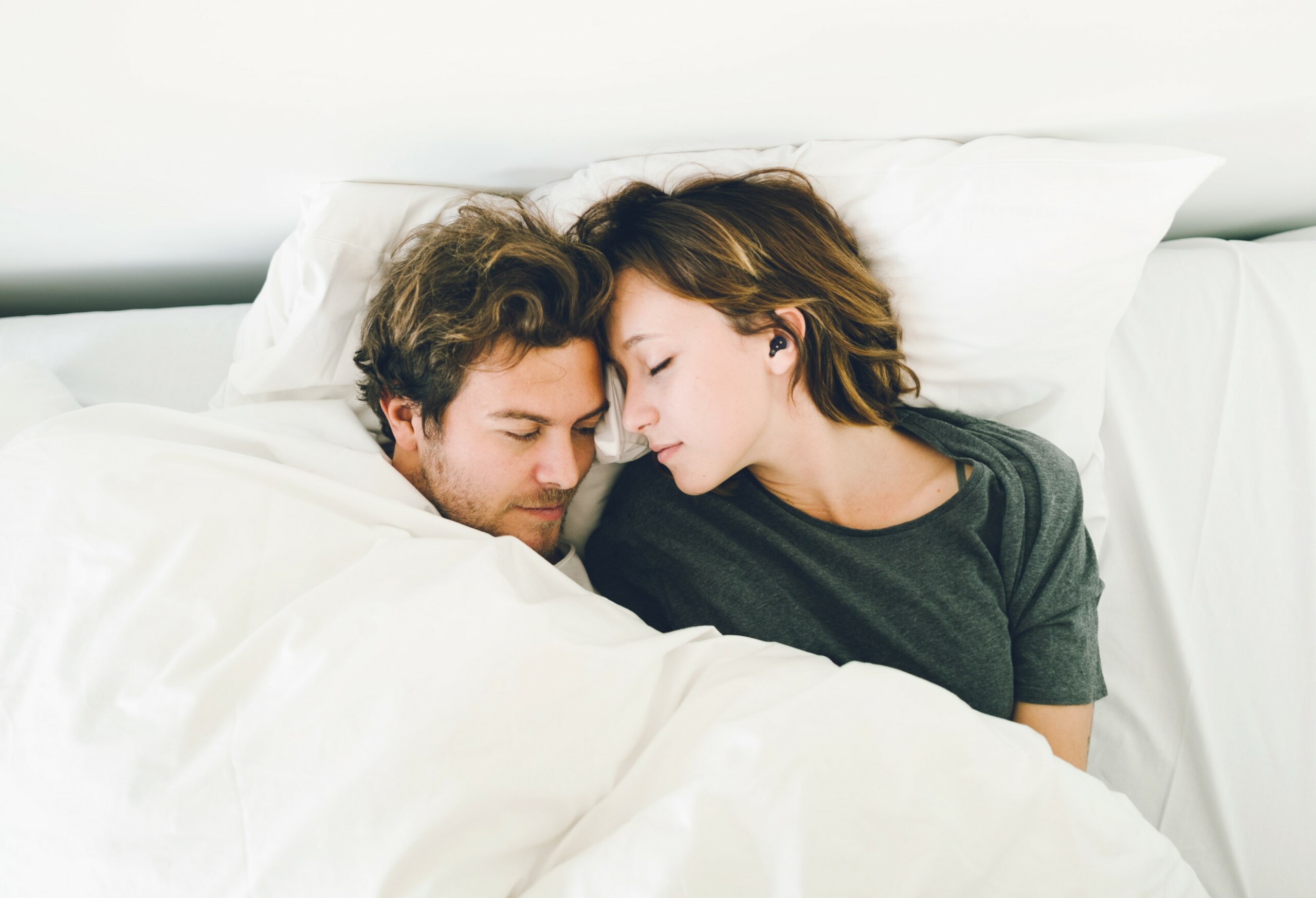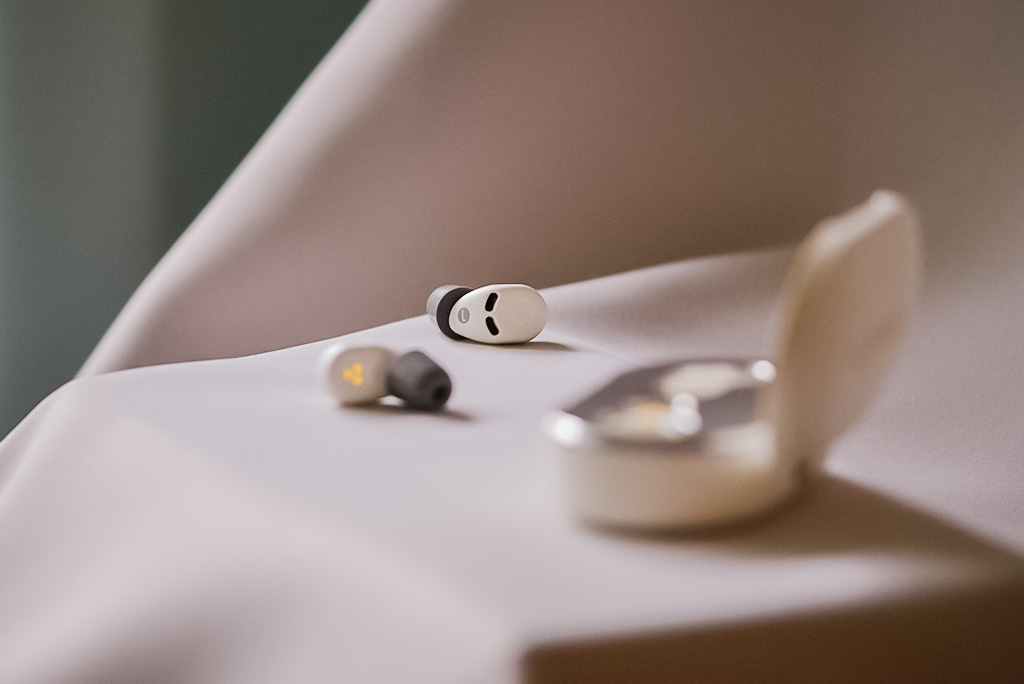Your cart is currently empty!
The Most Common Causes of Lost Sleep – Tips on How to Get Better Sleep and Improve Sleep Quality
Having trouble sleeping? Before you can fix something, you need to find the source of the problem – let us help you! In case you have not found the source of your sleeping problems, here are 7 of the most common causes for lost sleep.

1. Caffeine
Caffeine, known for its energizing effects, works by blocking the adenosine receptor in your body, a substance that promotes sleepiness. This interference can disrupt the natural sleep-wake cycle, making it difficult to achieve a restful night’s sleep, highlighting the connection between caffeine and sleep.
To enhance your sleep and minimize insomnia risk, avoid consuming caffeine at least 8 hours before bedtime or eliminate it altogether. Create a comfortable sleep environment if you still feel the effects of caffeine at bedtime.
2. Electronic Devices
One common thing affecting your sleep quality is electronic devices. Device screens emit blue light, which disturbs melatonin production that is crucial for sleep. Two or more hours of evening screen time can cause serious melatonin disruption, especially the surge of melatonin needed for sleep. In addition, bright bedroom lighting may reduce melatonin production by up to 90 minutes compared to dim lighting.
Give these tips a try to improve sleep quality:
- Turn off electronic devices at least one hour before bed.
- Engage in relaxing activities like reading or bathing.
- If using devices at night, minimize blue light exposure by adjusting brightness or using nighttime mode.
- Choose red, yellow, or orange lights for nighttime reading, as they minimally affect the circadian rhythm.
- Establish a bedtime routine and even keep your bedroom screen-free.
3. Irregular Sleep Schedule
Irregular sleep schedules can harm sleep quality by disrupting the natural circadian rhythm, leading to inconsistent sleep duration and reduced sleep efficiency. This inconsistency may increase daytime sleepiness, affect hormonal balance, and contribute to mood disorders and cognitive impairment.
Try these tips to improve an irregular sleep schedule:
- Set a consistent bedtime and wake-up time, adjusting gradually if needed.
- Limit short naps and avoid late-day napping.
- Control light exposure by increasing natural light during the day and reducing screen time in the evening.
4. Stress and Anxiety
Stress and sleep are closely connected – too much worrying and stress make it hard to fall and stay asleep. Lack of sleep triggers the stress response, increasing cortisol levels and making sleep even more difficult. Anxiety disorders tend to get worse when you don’t get enough sleep, leading to a harmful cycle of anxiety and insomnia.
To alleviate evening stress and improve sleep efficiency, modify nighttime behaviors using these techniques:
- Journaling thoughts before bed.
- Using meditation and breathing apps.
- Engaging in relaxing activities like baths and yoga.
- Scheduling dedicated worry times.
- Practicing deep breathing, mindfulness, and guided imagery.
5. Poor Sleep Environment and hygiene
A poor sleep environment consists of things in your bedroom or around you that make it hard for you to sleep well. This may include excessive noise, such as traffic or neighbors, uncomfortable temperatures, unsupportive bedding, clutter or disorganization causing stress, inconsistent sleep schedules, and external disturbances like sharing a bed with a disruptive partner.
An important aspect to improving sleep quality is reflecting on your sleep hygiene. Sleep hygiene refers to a set of practices and habits that promote healthy and restful sleep. These practices are essential for maintaining good sleep quality and overall well-being. Sleep hygiene includes various aspects of both the sleep environment and daily routines.
Tips for an optimal sleep environment:
- Create a quiet bedroom with noise-blocking solutions, such as the QuietOn 3.1, our active noise cancelling earbuds.
- Choose bedding and a mattress based on personal preferences and maintain a clean bedroom.
- Consider using relaxing scents like lavender essential oil to enhance sleep quality.
Trick to improve your sleep hygiene:
- Maintaining a consistent sleep schedule.
- Ensuring a comfortable and disruption-free bedroom.
- Following a relaxing pre-bed routine.
- Adopting healthy daytime habits.
6. Alcohol and Heavy Meals
Alcohol and sleep quality have a surprising connection. While alcohol’s sedative effects may initially induce relaxation, it is linked to poor sleep quality and duration. Drinking before bedtime can suppress some stages of sleep, reducing overall sleep quality. Sleep deprivation from poor sleep can lead to overeating and unhealthy food choices, forming a cycle that further worsens sleep. Overeating, especially at night, interferes with sleep by conflicting with the body’s digestion process, potentially causing increased sleep disruptions. Large meals, particularly with certain foods, can also disrupt sleep by raising body temperature.
Here’s our recommendations:
- Limit alcohol intake, especially near bedtime.
- Choose lighter, balanced evening meals to prevent digestion disruptions.
- Allow a few hours between eating and bedtime for proper digestion.
- Stay hydrated but minimize fluid intake close to bedtime.
- By being mindful of alcohol and meal timing, you can improve sleep quality and overall well-being.
7. Lack of Physical Activity
Physical inactivity is linked to shorter sleep durations and a higher risk of insomnia. It can contribute to fragmented sleep with more frequent awakenings, increased daytime sleepiness, and impaired cognitive function. Regular physical activity improves sleep architecture, enhances mood, and reduces stress, while a sedentary lifestyle may contribute to stress, anxiety, and depression, negatively affecting sleep quality.
To improve sleep with exercise, it’s recommended to incorporate regular physical activity into one’s routine. Engaging in aerobic exercises, such as walking, jogging, or cycling, can positively influence sleep patterns and overall well-being. However, it’s important to avoid vigorous exercise close to bedtime, as it may have an alerting effect and interfere with the ability to fall asleep.
In conclusion, improving the quality of your sleep involves addressing the common factors in your day to day life. Take a glance at your habits and surroundings, reflect on what you could improve on, and test out some of our tips and tricks. By implementing these strategies, you can make significant strides toward achieving restful sleep and overall well-being. Be patient with adjustments, and seek professional advice if sleep issues persist.
Another topic that you may take interest in is self-aware sleeping – a guide on how to start your journey towards better sleep through self-reflection. This article helps you understand more about your sleep habits, finding what works for you, and making small changes to feel better. Let us guide you through the details!





